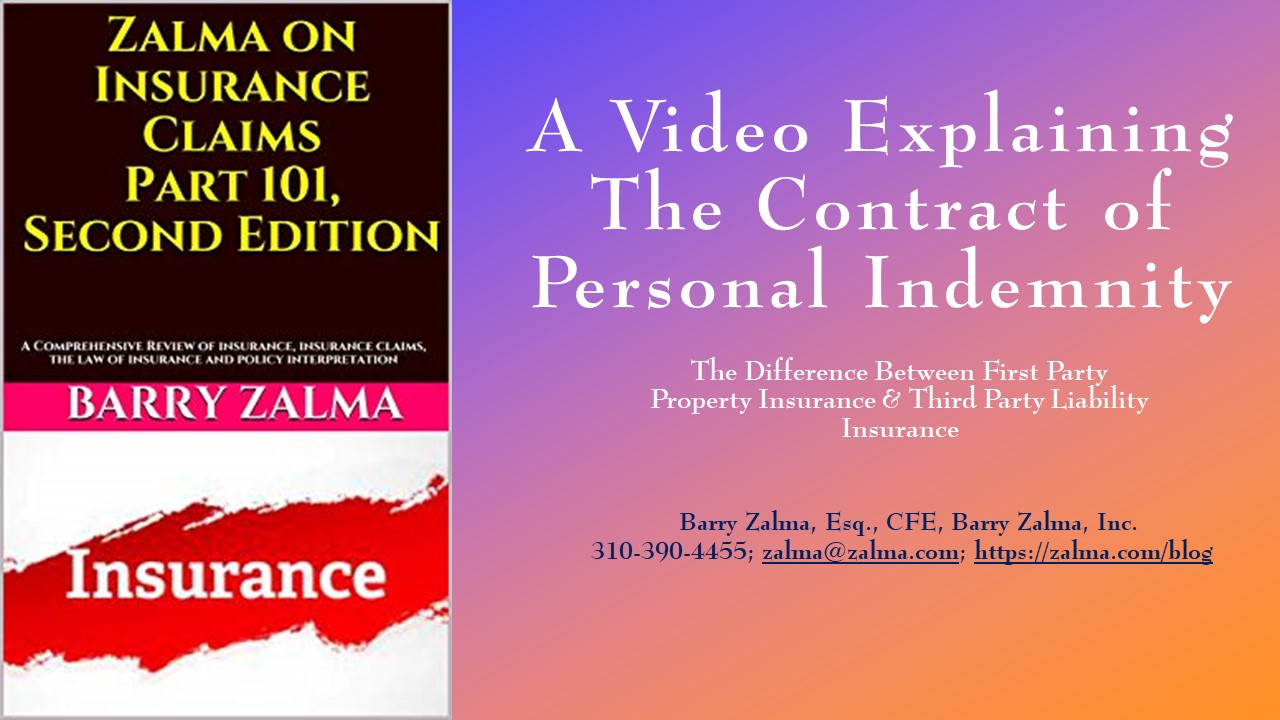Premium Only Content

A Video Explaining that the First Party Property Policy is a Contract of Personal Indemnity
First Party Property Insurance
The insurance claims adjuster (the adjuster) must always ascertain that the owner, or a person with some other insurable interest in the property, is the person insured and that the person insured has an interest in the property. Failure to do so could result in the insurer paying the wrong person or paying a person with no right to the benefits promised by the policy. Proceeds of a policy upon the interest of an insured are not subject to the claims of others who have an interest in the property but are not named as insured or who do not qualify as insureds by definition.
A first party property policy is considered by courts asked to interpret the conditions of the policy, a contract of personal indemnity. It is a contract made with the individual protected. The insurance does not go with the property as an incident thereto to any person who may buy that property. If it goes at all, it goes as a matter of contract for the transfer of the policy. [Estate of Cartwright v. Standard Fire Ins. Co., No. M2007-02691-COA-R3-CV, 2008 WL 4367573, *2 (Tenn. Ct.App. Sept. 23, 2008) (noting that "[t]he contract of insurance is also purely a personal contract between the insured and the insurance company, and does not attach to or run with the title to the insured's property absent an agreement for the transfer of the policy." Fulton Bellows, LLC v. Federal Ins. Co., 662 F.Supp.2d 976 (E.D. Tenn., 2009).
-
 13:02
13:02
Barry Zalma, Inc. on Insurance Law
1 year agoMurder Pays
3531 -
 17:10
17:10
Barry Zalma, Inc. on Insurance Law
4 years agoA Video Explaining how to Read and Interpret the Homeowners Policy
49 -
 16:29
16:29
zalma
4 years agoA Video Explaining How to Read and Understand Your Homeowners Policy
221 -
 14:39
14:39
Barry Zalma, Inc. on Insurance Law
4 years agoA video explaining the formation and interpretation of The Construction Contract
30 -
 15:35
15:35
Barry Zalma, Inc. on Insurance Law
4 years agoA Video Explaining What is Needed to Adjust the Commercial Property Loss
19 -
 13:32
13:32
TylerEmpire091
4 years ago $1.07 earnedTylers first video
2.54K2 -
 0:25
0:25
a11der
4 years ago $0.06 earnedfirst video for me
1872 -
 0:07
0:07
erkme73
4 years ago $1.52 earnedFirst Rumble video test
3.04K5 -
 0:12
0:12
GeorgeSmithJr
4 years ago $1.61 earnedTrump 2020. First video.
2.43K6 -
 1:36
1:36
Trapp
4 years ago $0.16 earnedFirst time lapse video
5071